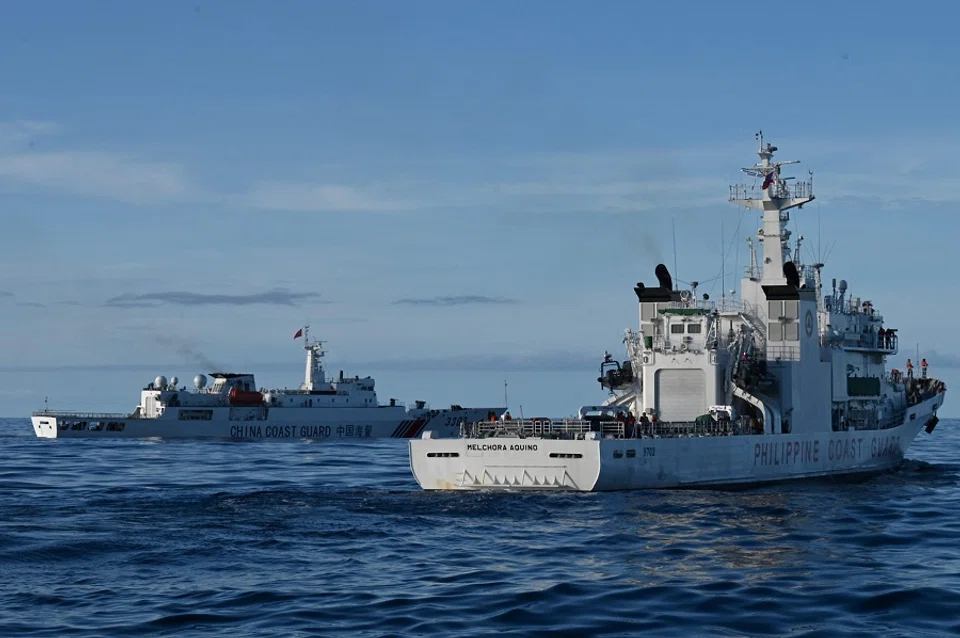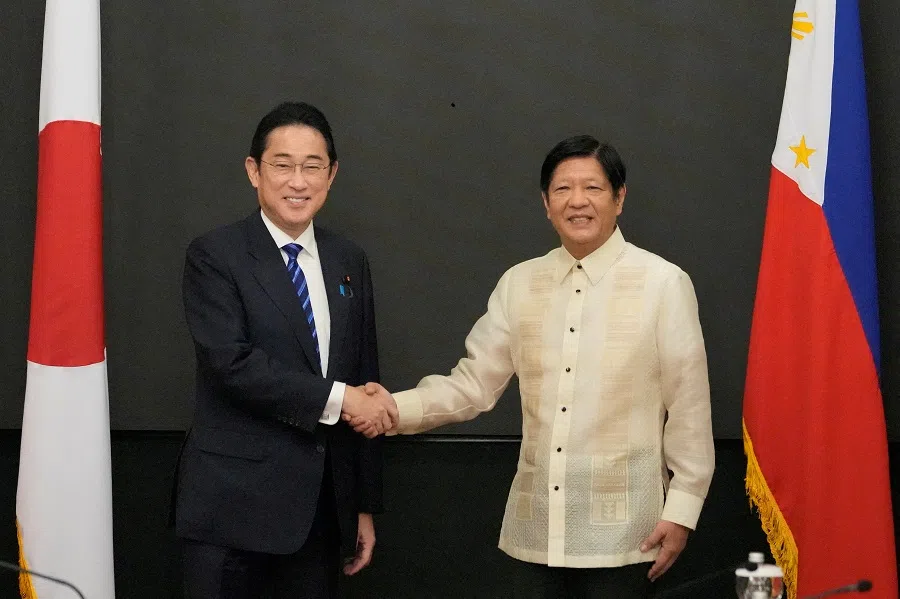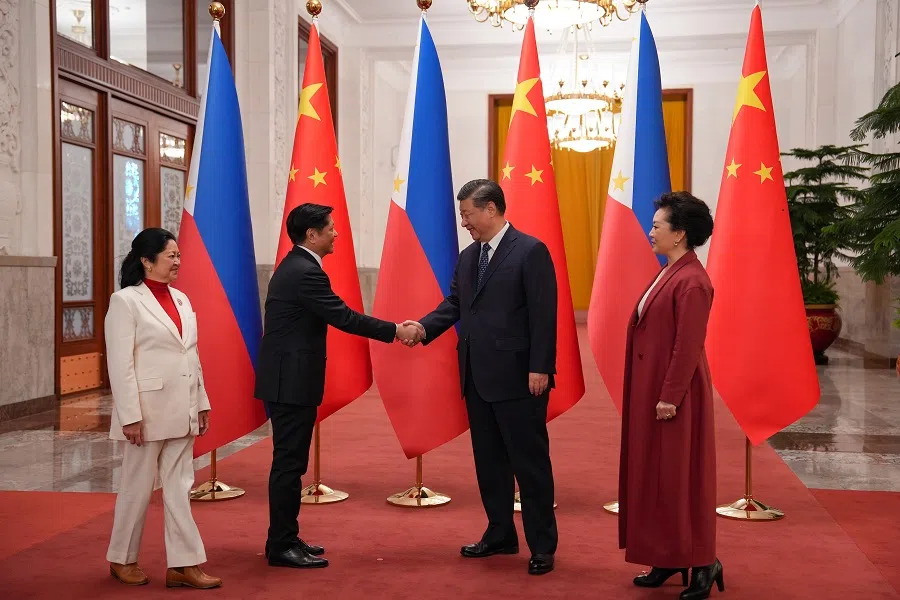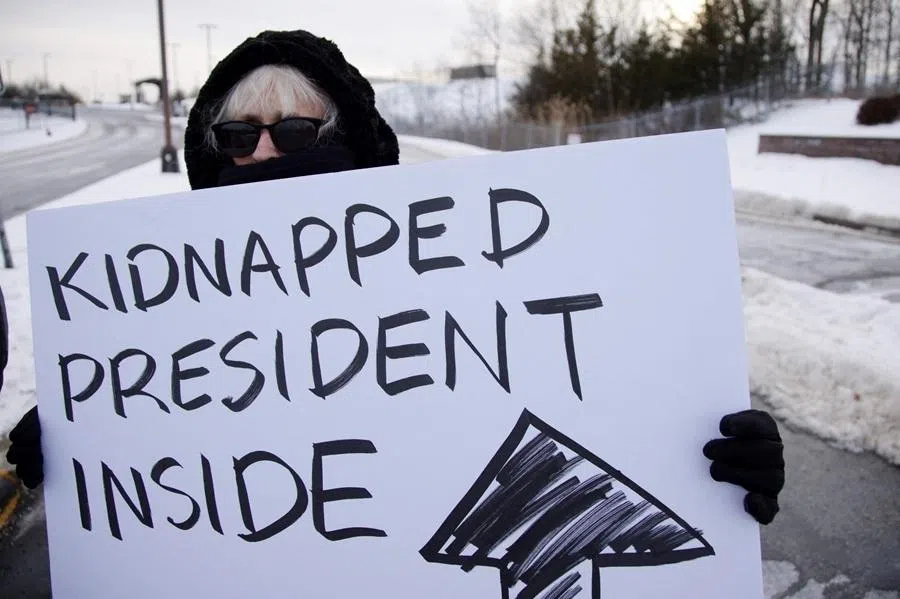Civil society should not get involved in the South China Sea disputes
Chinese academic Peng Nian notes that the Philippines is playing a dangerous game by stoking civil society sentiments in the South China sea disputes. It could end up being a lose-lose situation for bilateral relations.

Since Ferdinand Marcos Jr came to power in June 2022, the Philippines has escalated tensions in the South China Sea (SCS), thus becoming a big "troublemaker" in the region in the eyes of China. Domestically, the Marcos administration has not only adopted a more assertive position on SCS disputes but also engaged civil society in these disputes. On the international front, Manila has strengthened its military alliance with the US and expanded its coalition against China by aligning with disputants in the SCS.
... the Marcos government has employed provocative anti-China rhetoric and strengthened the influence of the pro-America camp within the Cabinet.
On 27 November, following the conclusion of joint maritime exercises with the US and Australia, Romeo Brawner Jr, the chief of staff of the Armed Forces of the Philippines, declared that the Philippines planned to conduct additional multilateral military exercises with other allies in the SCS in the future. He added that several countries were interested in staging maritime and aerial drills with the Philippine Navy in both bilateral and multilateral arrangements.
On 2 December, Philippine Defence Secretary Gilbert Teodoro and his French counterpart, Minister Sébastien Lecornu, agreed to initiate talks on the Visiting Forces Agreement. France would be the fourth country, followed by the US, Australia and Japan, that get access to the Philippine military facilities.
This indicates that Manila aims to expand the network of allies and partnerships it has established in pursuit of geopolitical interests in opposition to China in the SCS. Consequently, tensions in the SCS are anticipated to escalate in the next year. Earlier, when meeting with US military officers in Hawaii, Marcos Jr said that the Philippines is seeking to strengthen cooperation with countries with "similar values", such as the US, Australia, Japan and South Korea.
Ramping up anti-China rhetoric
Due to increasing internal factionalism, the Marcos government has employed provocative anti-China rhetoric and strengthened the influence of the pro-America camp within the Cabinet. The intention is to send a clear message to China that the Philippines is determined to steadfastly protect national sovereignty and territorial integrity in the contested waters and would not back down.

Parallel to this, the Marcos government is trying to win public opinion by following the American narrative of "the unprofessional operation of Chinese aircraft and vessels". For instance, it criticised the Chinese fighter jets that "orbited" above the flight path of the Super Tucanos of the Philippines during the latter's joint air patrol with Australia in the SCS.
Through these policy measures, Manila intends to further consolidate the negative image of China's "aggression" in the SCS, both in Philippine society and the international community, and to "throw the pot" (甩锅 or shift blame) to China in the event that two coastal guard forces of two countries clash.
However, the Philippine government's encouragement of its civil society to become involved in SCS disputes is dangerous as it would increase the risk of clashes between the Philippine civilian vessels and the Chinese coast guard in the disputed waters.
Dire consequences to getting civil society involved
In fact, Marcos Jr has failed to take the requisite measures to mitigate tensions with China in the SCS after his informal talks with Chinese President Xi Jinping at the APEC summit in November 2023. Instead, he disagreed with Chinese statements that the Philippines had agreed to remove their ship from Ren'ai Reef, and went on to support resupplying operations at the reef, and encouraged Philippine civil society and organisations to be involved in SCS conflicts.

With the government's support, on 20 November, the Philippine civil society announced that more than 40 fishing boats would be dispatched to deliver supplies to Ren'ai Reef. Clearly, the Marcos administration is trying to put some pressure on China, as the latter can be caught in a dilemma of how to properly expel these fishing boats without undermining the basis of public opinion for bilateral relations.
However, the Philippine government's encouragement of its civil society to become involved in SCS disputes is dangerous as it would increase the risk of clashes between the Philippine civilian vessels and the Chinese coast guard in the disputed waters. In the worst-case scenario, civilian casualties could occur, thus escalating tensions; on the other hand, any maritime standoff or military conflict between the Philippines and China in the SCS would increase anti-China sentiment in Philippine society or anti-Philippines sentiment in Chinese society and therefore undermine bilateral ties.
It is concluded in light of the aforementioned that the Marcos government should not encourage Philippine civil society to engage in SCS disputes to avoid escalation and deterioration of the Philippine-China relationship.





